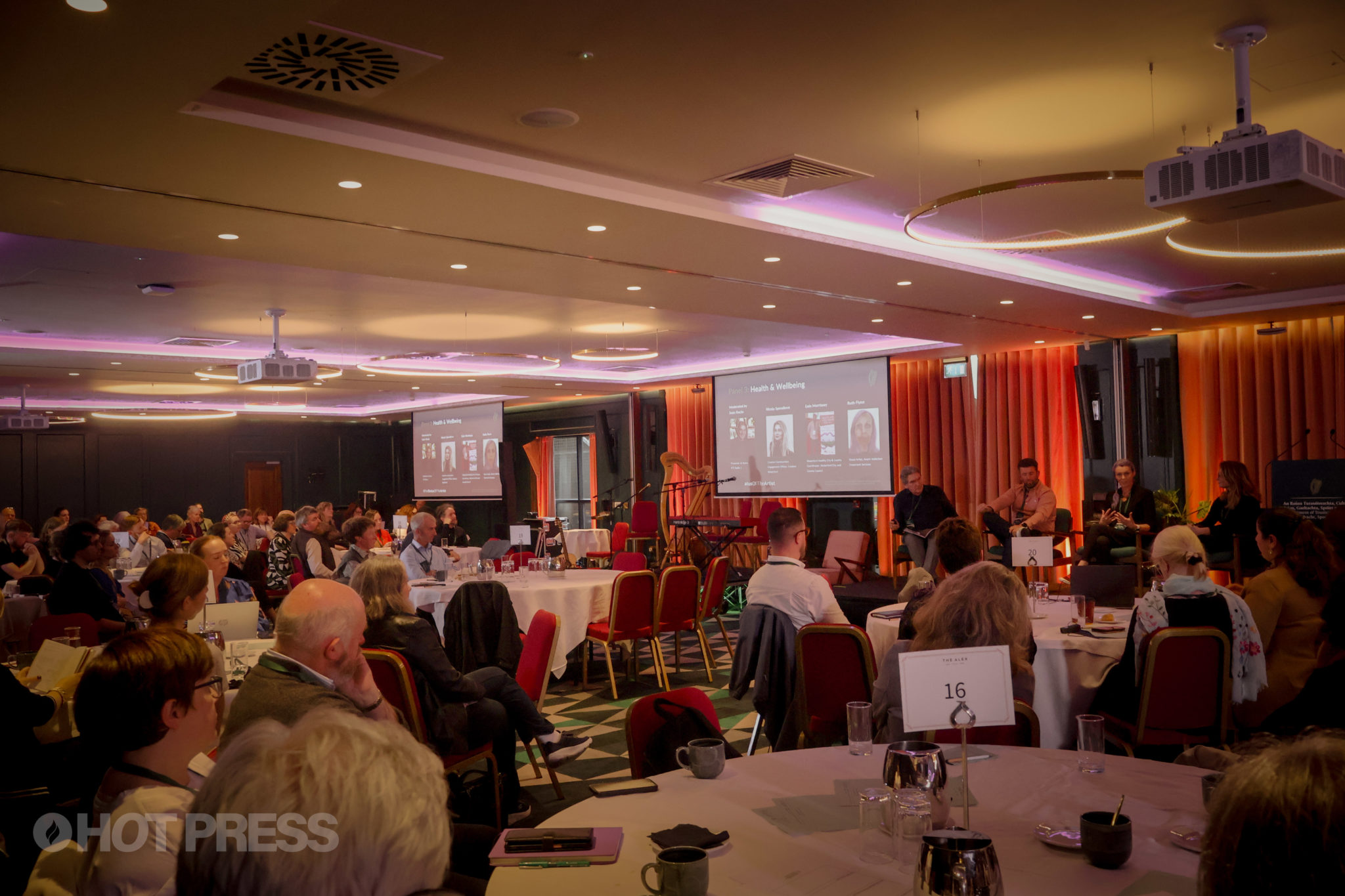- Culture
- 27 May 24
Minister Catherine Martin on Basic Income for the Arts: "A once in a generation policy intervention that has the potential to transform the lives of artists"

In a speech this morning, the Minister said she hopes to see "this scheme expanded to more and more artists" – and also discussed the importance of artists' freedom of expression.
Speaking about the Basic Income for the Arts (BIA) at a special Status of the Artist conference at the Alex Hotel in Dublin today, the Minister for Tourism, Culture, Arts, Gaeltacht, Sport and Media, Catherine Martin described the pilot scheme as "a once in a generation policy intervention that has the potential to transform the lives of artists."
Today's conference brought together artists and arts sector organisations, to discuss the impact of the first year of the BIA.
Launched in 2022, the pilot scheme is examining the impact of a basic income on artists and creative arts workers over a three-year period. Payments of €325 per week are being made to 2,000 eligible artists and creative arts workers, who have been selected at random.
In her opening remarks, Minister Martin stated that the BIA pilot scheme is "the signature innovation of this Government", in terms of "publicly funded support for our artists".
"Previous surveys have pointed to precarious incomes being all too common for artists," she told attendees. "Therefore, the delivery of the Basic Income for the Arts has been a key priority for me.
"Income precarity is of course an issue for artists across the world," she continued. "Last year the European Parliament adopted a proposal for an EU framework to improve the living and working conditions for cultural and creative workers. I am proud that Ireland is leading the way in terms of research into supports that can make the pursuit of a creative career possible. I know from many engagements with international colleagues that the world is watching what we are doing here in Ireland."
The conference coincided with the publication of a new report, analysing the impact of the BIA across its first year.
As the Minister notes:
"The research shows that positive impacts for those receiving the payment materialised fairly quickly within the first six months of the pilot. A year on, the BIA payment is having a consistent, positive impact across almost all indicators; affecting practice development, sectoral retention, well-being, and deprivation."
She also outlined some of the key findings:
- "each week, BIA recipients spend 8 hours more on their practice" than the control group (who are not receiving the payment)
- "they spend less time working in other sectors"
- "recipients are more likely than the control group to be able to sustain themselves through arts work alone"
- "life satisfaction increased for BIA recipients compared to the control group"
- "depression and anxiety decreased for recipients"
- "recipients were less likely to have difficulty making ends meet compared to the control group"
- "recipients invest each month €550 more than the control group in their practice, namely on equipment and materials, advertising and marketing, workspaces, and work travel."
- "recipients are more likely to have completed new works in the previous 6 months."
Although acknowledging that it is "still relatively early in the research phase" of the BIA, the Minister stated that "it is clear that the support is having a positive impact."
Noting that feedback from the artists participating in the scheme has been "unfailingly positive", Minister Martin said that she "would like to see this scheme expanded to more and more artists."
"The research my Department is doing during the pilot will be key in providing a strong evidence base for its continuation," she stated.

The Minister's speech also touched on "freedom of expression for artists", a subject she feels "has become particularly relevant with the ongoing conflict in Gaza," as numerous Irish artists continue to boycott events and festivals in solidarity with the Palestinian people.
She reiterated the fact that she has "the utmost respect" for that artistic freedom of expression – which, she said, is "fundamental" to artists' "role as agents of change in society."
"Freedom of expression for artists is an essential part of a properly functioning democracy," she continued. "It’s essential for us to have a diversity of voices and people willing to hold a lens up to society and reflect back what is happening."
Concluding her speech, Minister Martin described today's conference as "the first step in the consultation process" on a new cultural policy, building on the Government's last five-year strategy, Culture 2025.
"I am looking forward to hearing your views on what are the key themes we need to focus on to create the best environment we can for artists working in Ireland," she told attendees. "How we consume our culture, how we interact, the challenge of climate change, and other global factors, will all need to be considered in the development of our new policy."
RELATED

- Sex & Drugs
- 18 Apr 23
Trans and Intersex Pride Dublin reveals plans for 2023 Pride march

- Lifestyle & Sports
- 12 Apr 23
TikTok, Instagram & Facebook decline to appear before Oireachtas committee

- Culture
- 26 Dec 25
EPIC: The Irish Emigration Museum back in full swing on 27 December
RELATED

- Culture
- 24 Dec 25
The Best Books of 2025

- Culture
- 22 Dec 25
Tributes paid to Chris Rea

- Culture
- 22 Dec 25




